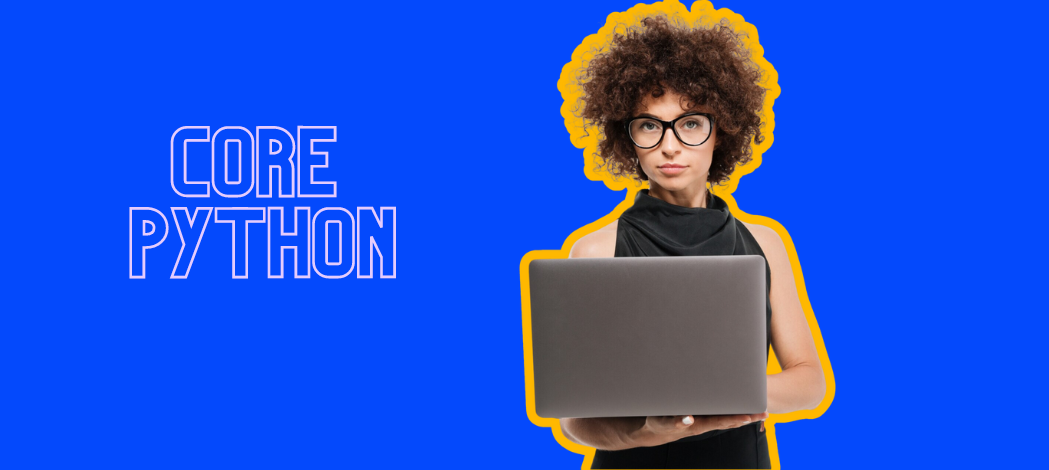
CORE PYTHON
What is Core Python Training
Have you ever heard of Python? It's a super cool programming language that's kind of like a superpower for computers! But before you can become a Python whiz, there are some foundational building blocks you need to learn. That's where Core Python Training comes in!
Think of Core Python Training as your launchpad into the exciting world of Python programming. This course is specifically designed for beginners, with no prior coding experience needed. It'll break down the essentials of Python in a way that's easy to understand, even if you've never written a line of code before.
Here's a sneak peek at what you'll learn in Core Python Training:
- Python's ABCs: Numbers, text, and special symbols - you'll master the different types of data Python can work with.
- Building Blocks: Lists, dictionaries, and tuples - these are like Python's super-containers that can hold all sorts of information!
- Decisions, Decisions: Learn how to write code that can make choices, just like you do!
- Looping Power: Ever wanted your computer to do something repeatedly? Loops are your secret weapon!
- Function Fun: Discover how to create reusable chunks of code - like mini-programs within your program!
Core Python Training isn't just about theory, though. You'll get plenty of hands-on practice by writing your own Python programs. Imagine the thrill of creating something awesome with code you wrote yourself!
By the end of this course, you'll have a solid understanding of the core concepts of Python. You'll be able to write basic programs, solve problems creatively, and be well on your way to becoming a Python pro. So, are you ready to unlock the power of Python? Dive into Core Python Training and start your coding adventure today!
Course Curriculum
Get the best Core Python Training with 100% placement assistance at Remote Learnings. We have expert trainers and exposure to live projects.
Understanding the basics of Python programming language. Setting up the development environment.
Working with variables, data types (integers, floats, strings, etc.), and operators.
Learning about conditional statements (if, elif, else) and loops (for, while).
Lists, tuples, dictionaries, sets, and their manipulation.
Writing and using functions, parameters, return values.
Organizing code into reusable modules and packages.

Mark Jukarberg
UX Design LeadDorem ipsum dolor sit amet, consectetur adipiscing elit, sed do eiusmod tempor incididunt ut labore et dolore magna aliqua Quis ipsum suspendisse ultrices gravida. Risus commodo viverra maecenas accumsan.







